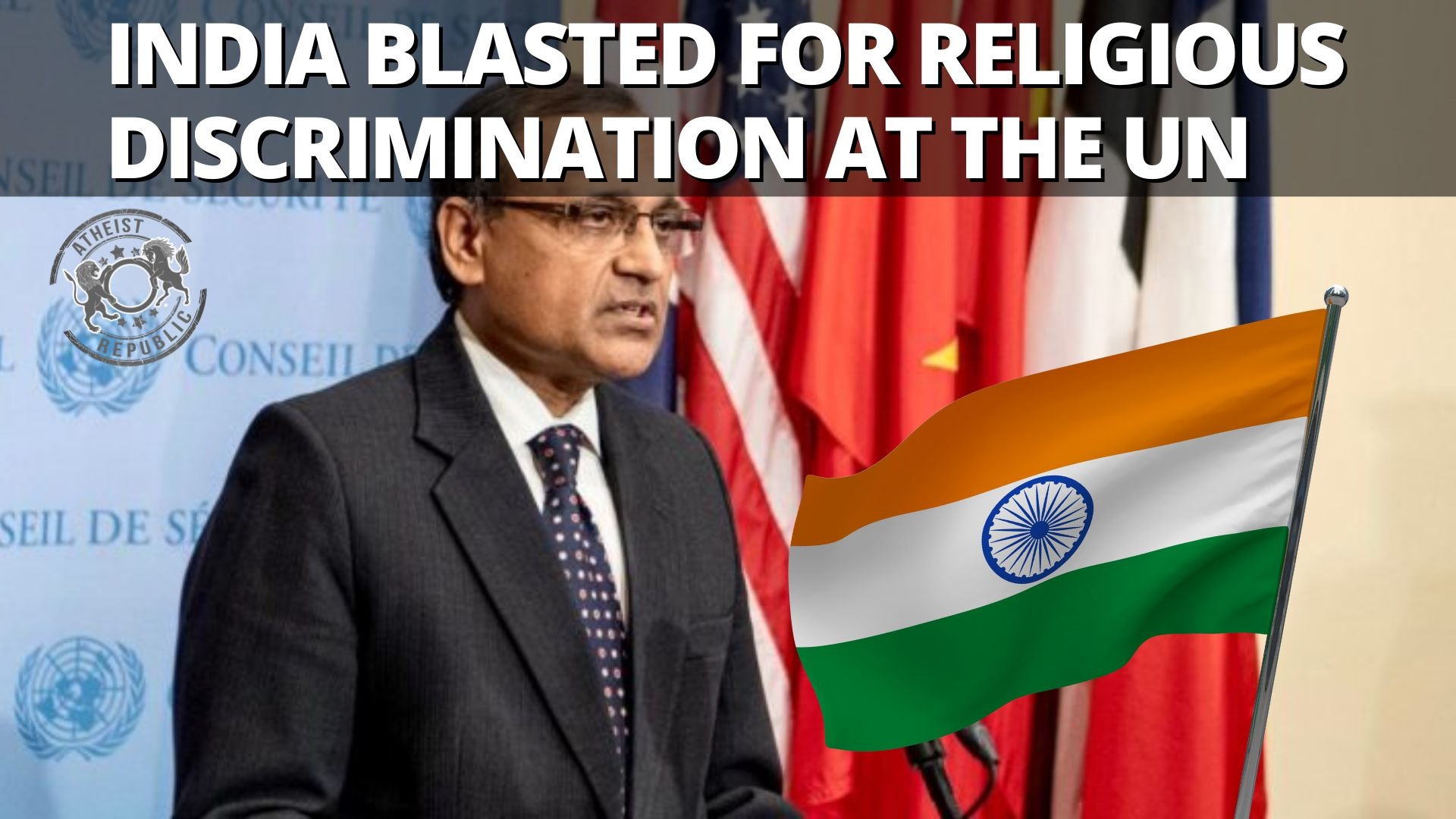
UN member states have called out India to improve its human rights record.
During a Universal Periodic Review (UPR) of New Delhi's human rights record at the United Nations Human Rights Council (UNHRC), UN member states advised India to take a stronger stance on sexual violence and religious discrimination. The UPR, conducted every four years, evaluates member states' human rights records. Any member state may query the state being reviewed and offer suggestions.
At #UPR41, States recommended that #India:
- combat violence against women
- ratify the Convention against Torture
- abolish the death penalty
- ensure freedom of expression, association & assembly
- protect civil society & human rights defenders + ethnic & religious minorities— UN Human Rights Council (@UN_HRC) November 10, 2022
During India's fourth UPR review on Thursday, member states urged New Delhi to limit the scope of its "anti-terror" laws.
A person can be labeled a "terrorist" based on suspicion under the "anti-terrorism" law known as the Unlawful Activities Prevention Act (UAPA), which allows for their detention without bail for months at a time. The law has drawn flak for targeting members of minority and rights groups and for having a low conviction rate.
The application of the UAPA by Prime Minister Narendra Modi's Hindu nationalist government in India has been severely criticized for disproportionately targeting minority groups and human rights activists without providing them with a fair trial opportunity.
American diplomat Michèle Taylor, the current United States ambassador, said to the UNHRC, "We recommend that India reduce the broad application of the Unlawful Activities (Prevention) Act and similar laws against human rights activists, journalists, and religious minorities." She also said, "Despite legal protections, discrimination and violence based on gender and religious affiliation persist. The application of anti-terror legislation has led to prolonged detentions of human rights defenders and activists."
India was accused of "engaging in and tolerating systematic, ongoing, and egregious violations of religious freedom" by the US Commission on International Religious Freedom (USCIRF) this April. To put India on the list of "countries of particular concern," the independent, bipartisan panel called for the US state department.
Many countries praised India for putting some of the recommendations made during the last UPR, which was held in 2017. However, others were quick to raise serious concerns as the stance on minority rights, freedom of speech, and violence against women has worsened. Canada asked India to investigate religious violence, including the cases against the Muslim community, to protect the freedom of religion and stop sexual violence.
As the other nations criticized New Delhi at the UNHRC, New Delhi said that it appreciates the human rights defenders for their crucial role and will only use the death penalty if necessary. Solicitor General of India, Tushar Mehta, has said to the council, "India condemns any form of torture and maintains an inviolable stand against arbitrary detention, torture, rape or sexual violence by anyone."
Although New Delhi has signed the United Nations Convention Against Torture (UNCAT) treaty, it has still not ratified it.
The chair of Amnesty International in India, Aakar Patel, said, "The world is telling India that the laws that are being implemented are not according to its own constitution. Citizenship Amendment Act [CAA] is not according to India's constitution, and we should be knowing it," referring to a controversial law that was passed by the Indian parliament in 2019, which provides Indian citizenship to minorities from other countries except Muslims.
For protesting against the CAA, which has been criticized for not following international human rights standards, hundreds of Muslims, including students and activists, were arrested under the UAPA law.
During the UPR review, Switzerland advised India not to impose any measures to slow down or block internet connections and provide open access to social networks to strengthen freedom of speech and expression. India stands at the top of the countries where internet shutdown occurs.
The Indian constitution assures the right to free speech. However, "freedom of speech and expression is not absolute in nature and is subject to reasonable restrictions" in the interests of India's sovereignty, integrity, security, foreign relations, "public order, decency, morality, contempt of court, defamation or incitement to an offense," said Mehta. "Imposing reasonable restrictions enables the state to regulate freedom of speech and expression where it amounts to hate speech," he added.
The suggestions will be taken to New Delhi for consideration, said the secretary of the foreign ministry of India, Sanjay Verma. "The government of India's abiding commitment is for the promotion and protection of the human rights of our people," he said. "As the world's largest democracy, India is committed to the highest standards of human rights."
